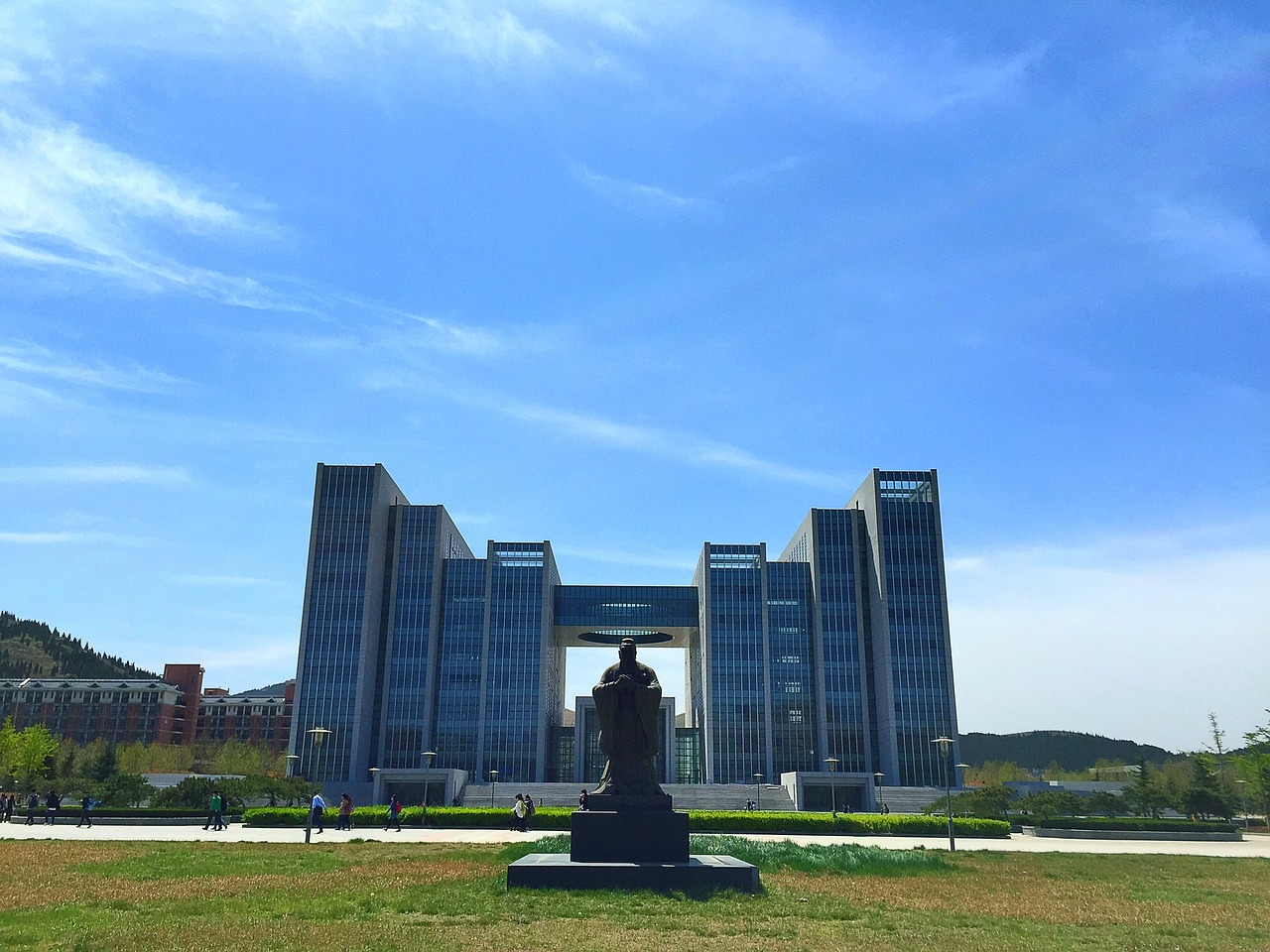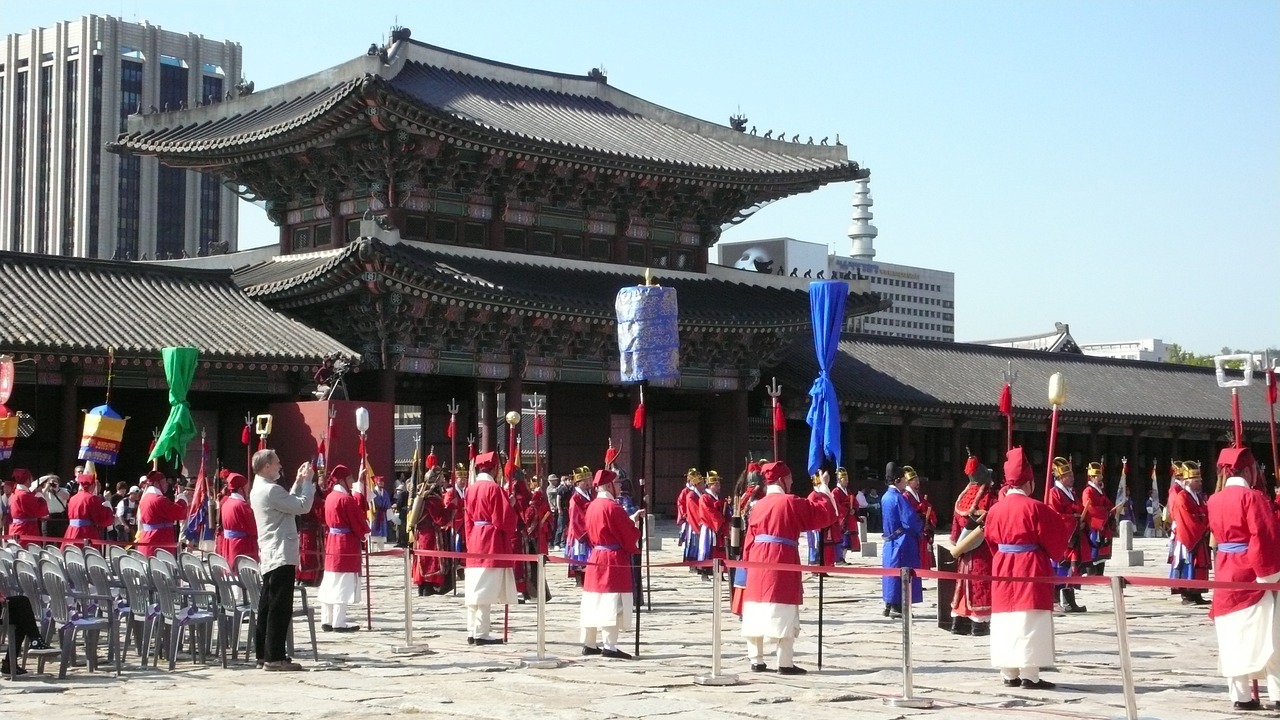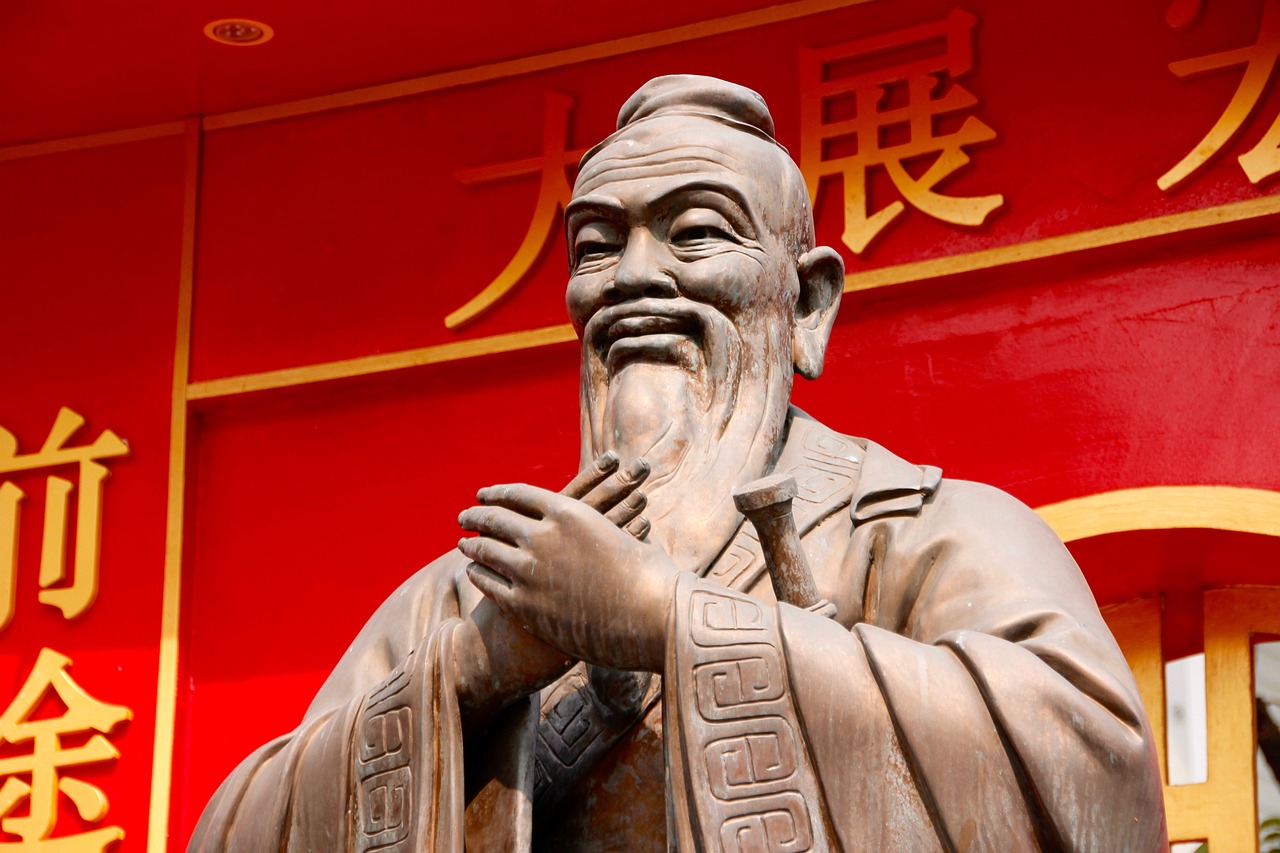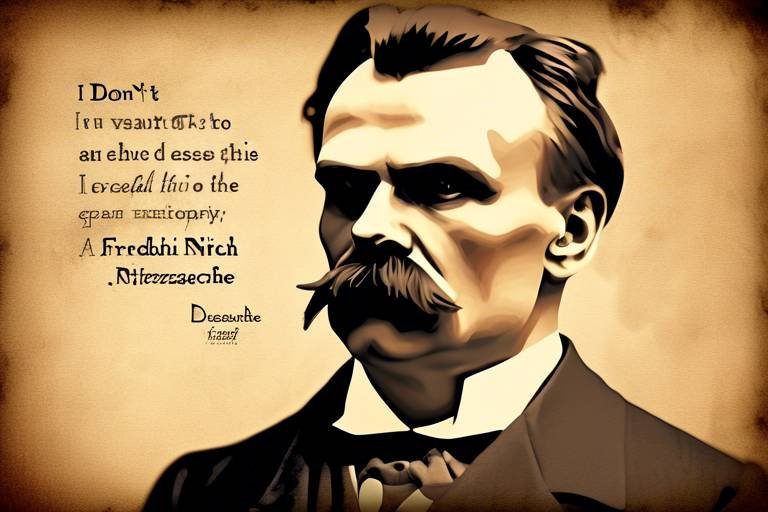Confucius's Contributions to Chinese Philosophy and Ethics
Confucius, a name that resonates through the corridors of history, is often hailed as one of the most influential philosophers in Chinese culture. His teachings, which emerged during a tumultuous period in ancient China, have not only shaped the moral fabric of Chinese society but have also provided a framework for ethical behavior that transcends borders and eras. But what exactly did Confucius contribute to philosophy and ethics? To answer this, we must delve into the core of his teachings and the profound impact they have had on individuals and communities alike.
At the heart of Confucianism lies a vision of a harmonious society, where individuals act with integrity and compassion. Confucius believed that the key to achieving this harmony was through the cultivation of moral virtues and the establishment of proper social relationships. His philosophy emphasizes the importance of education, not just as a means to acquire knowledge, but as a vital tool for personal and societal development. By fostering a love for learning and self-reflection, Confucius aimed to empower individuals to become better versions of themselves, thus contributing positively to their communities.
In addition to his emphasis on education, Confucius introduced several fundamental concepts that remain relevant today. For instance, the notion of Ren (benevolence) and Li (ritual propriety) are central to his ethical framework. Ren encourages individuals to cultivate compassion and empathy towards others, which is essential for building strong relationships and fostering social cohesion. Meanwhile, Li outlines the rituals and norms that govern social interactions, emphasizing the importance of respect and proper conduct in maintaining order within society. Together, these principles create a comprehensive ethical system that guides individuals in their personal and social lives.
The legacy of Confucius extends beyond the realm of philosophy; it has permeated various aspects of Chinese culture, including politics, education, and family dynamics. His teachings have influenced the structure of government, promoting the idea that rulers should be virtuous and lead by example. In education, his belief in the transformative power of knowledge has inspired generations of scholars and students. Moreover, Confucian values continue to shape familial relationships, highlighting the importance of filial piety and respect for elders.
As we explore the contributions of Confucius to Chinese philosophy and ethics, it becomes clear that his impact is both profound and enduring. His teachings serve as a timeless reminder of the importance of morality, education, and social harmony in our lives. In a world that often feels chaotic and disconnected, the principles laid out by Confucius offer a guiding light, encouraging us to strive for a more compassionate and understanding society.
- What is Confucianism?
Confucianism is a philosophical and ethical system based on the teachings of Confucius, focusing on morality, social relationships, and justice.
- What are the core values of Confucianism?
The core values include Ren (benevolence), Li (ritual propriety), Xiao (filial piety), and Junzi (the ideal person).
- How does Confucianism influence modern society?
Confucian values continue to influence various aspects of life, including education, family structure, and governance, promoting respect, harmony, and moral integrity.
- Is Confucianism a religion?
While it has religious elements, Confucianism is primarily a philosophical and ethical system rather than a religion in the traditional sense.

Philosophical Foundations
Confucius, a towering figure in the realm of Chinese philosophy, laid down the foundational concepts that continue to shape not only Chinese thought but also the broader East Asian intellectual landscape. His teachings are not just abstract ideas; they are practical guidelines that emphasize the importance of morality, social harmony, and the transformative power of education. Imagine a society where every individual strives for moral excellence and works towards the common good—this is the essence of Confucian philosophy.
At the heart of Confucius's teachings is the belief that individual morality is essential for societal well-being. He argued that a person’s character is not merely a private affair; rather, it ripples outwards, influencing families, communities, and ultimately the state. This interconnectedness is crucial because it underscores the idea that personal integrity is the bedrock of a harmonious society. It's like a well-tuned orchestra: if one instrument is out of sync, the entire performance suffers.
Confucius introduced several key concepts that encapsulate his philosophical vision. These include:
- Ren (Benevolence): The virtue of compassion and empathy.
- Li (Ritual Propriety): The norms and rituals that guide social interactions.
- Xiao (Filial Piety): The respect and devotion one shows to their parents and ancestors.
- Zhong (Loyalty): The importance of loyalty to one's friends and community.
These concepts are interwoven, creating a rich tapestry of ethical guidance. For instance, the practice of Li is not just about following rules; it fosters respect and proper conduct, which in turn cultivates Ren. This cyclical relationship between these principles illustrates how personal development contributes to societal harmony.
Furthermore, Confucius emphasized the role of education in achieving these ideals. He believed that through learning, individuals could refine their moral character and better their communities. This is not just about accumulating knowledge; it's about developing a deep understanding of oneself and one’s place in the world. Education, in Confucian thought, is a lifelong journey—a never-ending quest for self-improvement and enlightenment.
In summary, the philosophical foundations laid by Confucius are not only theoretical constructs but also practical tools for living a life of purpose and integrity. His teachings remind us that our actions have consequences, and that striving for moral excellence is essential for both personal fulfillment and societal progress.
- What is the main focus of Confucian philosophy? Confucian philosophy primarily focuses on morality, social harmony, and the importance of education.
- How does Confucius's idea of Ren influence society? Ren promotes compassion and empathy, fostering strong interpersonal relationships and social cohesion.
- Why is education important in Confucianism? Education is seen as a means to cultivate moral character and encourage lifelong learning for personal and societal improvement.

Moral Principles
At the heart of Confucianism lies a set of that serve as a compass for individual behavior and societal interactions. These principles are not just abstract ideas; they are the building blocks of a harmonious society, guiding people toward a life of integrity and respect. Confucius believed that a well-ordered society is rooted in the moral character of its individuals. This means that each person plays a vital role in maintaining social harmony through their actions and decisions.
Central to these moral principles are several key virtues, including benevolence, righteousness, and propriety. Each of these virtues holds significant weight in Confucian thought, and together they create a framework that encourages individuals to strive for personal excellence while also considering the welfare of others. It's like building a house: each virtue represents a brick that, when combined, creates a sturdy structure capable of withstanding the storms of life.
Let’s delve deeper into these virtues:
- Ren (Benevolence): This is perhaps the most crucial virtue in Confucian ethics. It embodies the idea of compassion and empathy towards others. When individuals practice Ren, they cultivate a sense of community and foster strong interpersonal relationships, which are essential for social harmony.
- Li (Ritual Propriety): Li represents the rituals and norms that govern social interactions. It emphasizes the importance of respect and proper conduct, which are vital for maintaining order and harmony within society.
- Xiao (Filial Piety): This principle stresses the importance of respecting and honoring one’s parents and ancestors. It underscores the belief that strong family bonds contribute to a stable society.
Each of these virtues interacts with the others, creating a holistic approach to ethics that encourages individuals not only to improve themselves but also to uplift their communities. Imagine a garden where each flower represents a virtue; when nurtured together, they create a beautiful and thriving ecosystem. This interconnectedness is what makes Confucian moral principles so powerful and enduring.
Moreover, practicing these virtues is not just about following rules; it’s about cultivating a mindset that prioritizes the well-being of others. For instance, when we embody Ren, we engage in acts of kindness and understanding daily, allowing us to create a ripple effect of positivity in our interactions. It’s like throwing a stone into a pond—the ripples extend far beyond where the stone landed, affecting everything around it.
In essence, Confucius’s moral principles are not merely guidelines; they are a way of life. They challenge us to reflect on our actions and their impact on others, urging us to strive for a balance between personal integrity and social responsibility. By embracing these principles, individuals can contribute to a more harmonious society, where mutual respect and understanding flourish.

Ren (Benevolence)
In the rich tapestry of Confucian thought, Ren, often translated as benevolence or humaneness, stands out as a cornerstone virtue. It embodies the essence of compassion and empathy that Confucius believed was essential for fostering harmonious relationships within society. Imagine a world where every interaction is colored by kindness and understanding; this is the vision that Ren strives to achieve. It is not merely an abstract concept but a living, breathing principle that guides our actions and interactions with others.
Ren is about more than just feeling good; it's about taking action. When we practice Ren, we are not just thinking about being nice; we are actively engaging in behaviors that uplift those around us. This could mean lending a helping hand to a neighbor in need, offering words of encouragement to a friend, or even showing patience to a stranger. The ripple effect of such actions can be profound, creating a community that thrives on mutual respect and support. In Confucianism, Ren is seen as the foundation of a well-functioning society, where individuals prioritize the welfare of others.
To further understand the importance of Ren, let’s consider its implications in everyday life. Practicing Ren can be broken down into several key aspects:
- Empathy: The ability to understand and share the feelings of another. Empathy is the first step towards acting with benevolence.
- Acts of Kindness: Simple gestures, like helping someone carry their groceries or volunteering time for a local charity, can embody Ren.
- Forgiveness: Recognizing that everyone makes mistakes and choosing to forgive fosters a supportive environment.
Through these actions, individuals not only enhance their own moral character but also contribute to a culture of community and support. Ren encourages us to look beyond ourselves, to recognize our interconnectedness, and to act in ways that promote the greater good. It invites us to reflect on our daily interactions and consider how we can infuse them with more kindness and understanding.
Ultimately, the practice of Ren is a lifelong journey. It requires constant reflection and a commitment to personal growth. As we strive to embody this virtue, we create a positive feedback loop: the more we practice benevolence, the more we inspire others to do the same. This is the beauty of Ren—it not only transforms our own lives but also has the potential to change the world around us.

Importance of Ren
Ren, often translated as benevolence or humaneness, is not just a word in Confucian philosophy; it is the very essence of what it means to be human. Imagine a world where everyone treated each other with genuine kindness and empathy. This is the world that Confucius envisioned through the practice of Ren. The importance of Ren lies in its profound ability to create and nurture strong interpersonal connections. When individuals embody Ren, they contribute positively to their communities, fostering an environment where trust and mutual respect flourish.
At its core, Ren encourages individuals to prioritize the welfare of others. It acts as a guiding light in our interactions, prompting us to consider the feelings and needs of those around us. In a society where Ren is practiced, we see a ripple effect of compassion—one act of kindness can inspire another, creating a chain reaction of goodwill. This is particularly important in today's fast-paced world, where individualism often overshadows community spirit. By embracing Ren, we can cultivate a sense of belonging and support that transcends social barriers.
| Benefits of Practicing Ren | Impact on Society |
|---|---|
| Strengthened relationships | Enhanced social cohesion |
| Increased empathy | Reduction in conflicts |
| Promotion of altruism | Improvement in community welfare |
Furthermore, practicing Ren in daily life doesn't require grand gestures; it can be as simple as offering a listening ear to a friend or showing patience in a stressful situation. These small acts of kindness accumulate, creating a culture of empathy that can transform entire communities. When we choose to act with Ren, we not only enhance our own lives but also uplift those around us, reinforcing the interconnectedness of human experiences.
In conclusion, the importance of Ren in Confucianism cannot be overstated. It serves as the foundation for personal integrity and social harmony, reminding us that our actions have the power to shape the world. By fostering a culture of benevolence, we are not merely adhering to a philosophical principle; we are actively participating in the creation of a more compassionate and understanding society. So, the next time you find yourself in a situation where you can show kindness, remember that you are contributing to the greater good—one act of Ren at a time.
- What is Ren in Confucianism? Ren is a fundamental virtue that embodies benevolence, compassion, and empathy towards others.
- How can I practice Ren in my daily life? You can practice Ren by showing kindness, listening to others, and prioritizing the well-being of those around you.
- Why is Ren important for society? Ren fosters strong interpersonal relationships, promotes social harmony, and encourages a supportive community.

Practicing Ren in Daily Life
Practicing Ren in daily life isn't just about grand gestures; it’s woven into the very fabric of our everyday interactions. Imagine walking down the street and seeing someone struggling with their groceries. Instead of merely passing by, you take a moment to lend a hand. This simple act of kindness is a reflection of Ren—a daily practice that fosters compassion and empathy. When we prioritize the well-being of others, we create a ripple effect that enhances social harmony.
To truly embody Ren, we can incorporate small yet meaningful actions into our routines. For instance, consider how you interact with your colleagues at work. Instead of just focusing on your tasks, take a moment to check in on a coworker who seems overwhelmed. A supportive word or a listening ear can make a world of difference. This approach not only uplifts others but also cultivates a positive environment where everyone feels valued and respected.
Furthermore, practicing Ren extends to our families and friends. It’s about being present and showing genuine care. Whether it’s remembering a loved one’s birthday or simply asking about their day, these gestures strengthen our bonds. In essence, Ren is about recognizing our shared humanity and acting in ways that uplift those around us.
Here are some practical ways to practice Ren in daily life:
- Acts of Kindness: Small gestures, like holding the door open for someone or offering a compliment, can brighten someone’s day.
- Active Listening: When someone speaks to you, give them your full attention. This shows that you value their thoughts and feelings.
- Community Engagement: Participate in local volunteer opportunities. Helping those in need fosters a sense of community and connection.
- Empathy in Conflict: In disagreements, strive to understand the other person’s perspective. This can lead to more constructive resolutions.
Ultimately, practicing Ren is about making a conscious choice to be kind and considerate in our interactions. It’s like planting seeds of goodwill; the more we practice, the more we cultivate a garden of compassion that benefits everyone. By embodying Ren, we not only enhance our lives but also contribute to a more harmonious society. Remember, every small act of kindness counts, and together, these actions can lead to profound change.
1. What is Ren in Confucianism?
Ren, often translated as benevolence or humaneness, is a core virtue in Confucian philosophy that emphasizes compassion and empathy towards others.
2. How can I practice Ren in my daily life?
You can practice Ren by engaging in acts of kindness, listening actively to others, and being considerate in your interactions.
3. Why is practicing Ren important?
Practicing Ren fosters social harmony and strengthens interpersonal relationships, creating a more compassionate and understanding community.
4. Can practicing Ren improve my relationships?
Absolutely! By showing empathy and kindness, you build trust and strengthen connections with those around you.
5. How does Ren relate to other Confucian values?
Ren is interconnected with other Confucian values such as Li (ritual propriety) and Xiao (filial piety), all of which contribute to a well-ordered and harmonious society.

Li (Ritual Propriety)
This article explores the significant impact of Confucius on Chinese philosophy and ethics, highlighting his teachings, principles, and their lasting influence on Chinese society and culture.
Confucius established key philosophical concepts that shaped Chinese thought, emphasizing morality, social harmony, and the importance of education in personal and societal development.
Central to Confucianism are the moral principles that guide individual behavior, focusing on virtues such as benevolence, righteousness, and propriety, which are essential for personal integrity and social cohesion.
Ren, or benevolence, is a fundamental virtue in Confucian ethics, representing compassion and empathy towards others, which promotes social harmony and human relationships.
The importance of Ren lies in its ability to foster strong interpersonal connections, enabling individuals to contribute positively to society and cultivate a sense of community.
Practicing Ren in daily life involves acts of kindness and understanding, encouraging individuals to prioritize the well-being of others in their interactions.
Li, often translated as "ritual propriety," serves as a cornerstone of Confucian philosophy, encapsulating the essence of social order and moral conduct. It's not merely about following traditions or performing rituals; it's about understanding the underlying principles that govern human interactions. Imagine a well-choreographed dance where each step has its place, contributing to a beautiful performance. In the same way, Li guides individuals to navigate the complexities of social life with grace and respect.
At its core, Li emphasizes the importance of respect—respect for oneself, for others, and for the social structures that bind society together. This respect manifests in various ways, including:
- Observing social norms and customs
- Practicing proper etiquette in communication
- Demonstrating reverence in familial and societal relationships
By adhering to Li, individuals cultivate a sense of harmony and stability within their communities. It acts as a glue that holds society together, ensuring that everyone knows their role and responsibilities, much like the gears in a well-oiled machine.
Furthermore, Li is not static; it evolves with the society it serves. Confucius believed that as society changes, so too must the rituals and norms that govern it. This adaptability is crucial for maintaining relevance and effectiveness in guiding behavior. For instance, while traditional ceremonies may hold significant importance, the essence of Li can also be reflected in modern interactions, such as showing respect during conversations and valuing diverse perspectives.
In summary, Li is more than just a set of rules; it is a dynamic framework that encourages individuals to act with integrity and respect. By embodying the principles of Li, one not only enhances their own character but also contributes to a more harmonious and cohesive society.
Confucius championed education as a means to cultivate moral character, arguing that learning and self-reflection are vital for personal growth and societal improvement.
The role of the teacher in Confucian thought is pivotal, as educators are seen as moral guides who shape the character and intellect of their students.
Confucius advocated for lifelong learning, encouraging individuals to continuously seek knowledge and self-improvement throughout their lives, contributing to personal and societal advancement.
Li is significant as it establishes the norms and rituals that govern social interactions, promoting respect and order within society.
Practicing Li can be done through everyday acts of respect, such as greeting others politely, observing social customs, and valuing family relationships.
Yes, Li remains relevant as it encourages respectful interactions and helps maintain social harmony, adapting to contemporary contexts.

Educational Philosophy
Confucius championed education as a transformative force, believing it to be the cornerstone of moral character and societal progress. He argued that education is not merely about acquiring knowledge; it’s about cultivating virtues that shape an individual’s character. This perspective is significant because it positions education as a lifelong journey rather than a destination. Imagine education as a river, constantly flowing and adapting, where each bend represents new knowledge and experiences that enrich our lives. Confucius emphasized the importance of self-reflection, encouraging individuals to think critically about their actions and the world around them. This approach to learning fosters a deeper understanding of oneself and one’s place in society.
In Confucian thought, the role of the teacher is pivotal. Educators are not just providers of information; they serve as moral guides, shaping the character and intellect of their students. This relationship between teacher and student is akin to that of a gardener and a plant. Just as a gardener nurtures a plant with care and attention, a teacher cultivates the minds and hearts of their students, helping them grow into responsible and ethical individuals. Confucius believed that a good teacher inspires curiosity and instills a sense of responsibility in their students, encouraging them to pursue knowledge with passion and integrity.
Moreover, Confucius advocated for lifelong learning. He believed that the quest for knowledge should continue throughout one’s life, not just during formal schooling. This philosophy resonates today as we navigate a rapidly changing world where new information and skills are constantly emerging. Lifelong learning is essential for personal and societal advancement, allowing individuals to adapt to new challenges and contribute positively to their communities. In this context, education becomes a shared responsibility, where everyone is encouraged to seek knowledge and wisdom. It’s like being part of a grand tapestry, where each thread represents an individual’s learning journey, contributing to the richness of the overall fabric of society.
To illustrate the significance of Confucian educational philosophy, consider the following table that summarizes key aspects:
| Aspect | Description |
|---|---|
| Role of the Teacher | Moral guides who shape character and intellect |
| Lifelong Learning | Continuous pursuit of knowledge and self-improvement |
| Self-Reflection | Critical thinking about one’s actions and their impact |
| Community Responsibility | Encouragement to contribute positively to society |
In conclusion, Confucius’s educational philosophy emphasizes the profound impact of education on personal development and societal harmony. By viewing education as a lifelong endeavor and recognizing the vital role of teachers, we can appreciate how these principles remain relevant today. They remind us that learning is not just about filling our minds with facts but about nurturing our character and contributing to the greater good.
- What is the main focus of Confucius's educational philosophy?
Confucius focused on the cultivation of moral character and the importance of lifelong learning. - How does Confucius view the role of teachers?
Teachers are seen as moral guides who shape the character and intellect of their students. - Why is lifelong learning important in Confucian thought?
Lifelong learning is essential for personal growth and societal advancement, allowing individuals to adapt to new challenges.

Role of the Teacher
In the realm of Confucianism, the is not merely that of an instructor but rather a profound moral guide. Confucius believed that teachers are the architects of society, shaping the minds and hearts of their students. Imagine a sculptor delicately chiseling away at a block of marble; similarly, teachers mold the character and intellect of their pupils, helping them to realize their potential. This perspective elevates the teaching profession to a sacred duty, emphasizing the immense responsibility educators carry in fostering ethical behavior and critical thinking.
Confucius famously stated, “To be wronged is nothing, unless you continue to remember it.” This highlights the idea that teachers should not only impart knowledge but also instill resilience and the ability to reflect on one’s actions. They guide students to learn from their mistakes, fostering a mindset of continuous improvement. The impact of a teacher extends beyond the classroom; it resonates throughout the community, as educated individuals contribute positively to society.
Furthermore, the teacher-student relationship in Confucian thought is built on mutual respect and trust. This dynamic is crucial as it creates a safe space for students to express their thoughts and engage in meaningful dialogue. A teacher is expected to embody the virtues they teach, serving as a living example of ren (benevolence) and li (ritual propriety). In this way, students learn not just through lectures but through observation and imitation, understanding that actions often speak louder than words.
Additionally, Confucius advocated for the importance of lifelong learning, which is a key aspect of the teacher's role. Educators are encouraged to be perpetual students themselves, constantly seeking knowledge and self-improvement. This commitment to learning sets a powerful example for students, demonstrating that education is a journey rather than a destination. As teachers embrace this philosophy, they inspire their students to adopt a similar mindset, fostering a culture of curiosity and growth.
In summary, the role of the teacher in Confucianism transcends traditional educational boundaries. Teachers are seen as moral leaders who shape the future of society by nurturing the next generation's character and intellect. They are not just dispensers of knowledge but also mentors who guide students on their path to becoming responsible and ethical individuals. This profound understanding of the teacher's role underscores the importance of education in achieving social harmony and personal fulfillment.
- What is the main role of a teacher in Confucian philosophy?
The main role of a teacher in Confucian philosophy is to serve as a moral guide, shaping the character and intellect of students while fostering a culture of respect and lifelong learning.
- How does Confucius view the relationship between teachers and students?
Confucius views the relationship between teachers and students as one built on mutual respect and trust, where teachers lead by example and students engage in meaningful dialogue.
- Why is lifelong learning important in Confucianism?
Lifelong learning is important in Confucianism because it encourages individuals to continuously seek knowledge and self-improvement, contributing to personal growth and societal advancement.

Importance of Lifelong Learning
This article explores the significant impact of Confucius on Chinese philosophy and ethics, highlighting his teachings, principles, and their lasting influence on Chinese society and culture.
Confucius established key philosophical concepts that shaped Chinese thought, emphasizing morality, social harmony, and the importance of education in personal and societal development.
Central to Confucianism are the moral principles that guide individual behavior, focusing on virtues such as benevolence, righteousness, and propriety, which are essential for personal integrity and social cohesion.
Ren, or benevolence, is a fundamental virtue in Confucian ethics, representing compassion and empathy towards others, which promotes social harmony and human relationships.
The importance of Ren lies in its ability to foster strong interpersonal connections, enabling individuals to contribute positively to society and cultivate a sense of community.
Practicing Ren in daily life involves acts of kindness and understanding, encouraging individuals to prioritize the well-being of others in their interactions.
Li refers to the rituals and norms governing social interactions, emphasizing respect and proper conduct, which are crucial for maintaining order and harmony within society.
Confucius championed education as a means to cultivate moral character, arguing that learning and self-reflection are vital for personal growth and societal improvement.
The role of the teacher in Confucian thought is pivotal, as educators are seen as moral guides who shape the character and intellect of their students.
Lifelong learning is a cornerstone of Confucian philosophy, reflecting an understanding that education does not stop at a certain age or level. Instead, it is a continuous journey that enriches our lives and enhances our capabilities. Confucius believed that the pursuit of knowledge is a never-ending quest; one that not only improves individual lives but also contributes to the betterment of society as a whole. This philosophy encourages individuals to remain curious and open-minded, adapting to the ever-changing world around them.
Moreover, lifelong learning fosters resilience and adaptability, essential traits in today’s fast-paced environment. In a world where new information and technologies emerge daily, those who commit to learning are better equipped to navigate challenges and seize opportunities. This is akin to a gardener tending to their plants; just as a gardener must nurture their garden continuously, individuals must cultivate their minds and skills to thrive.
By embracing lifelong learning, individuals can:
- Enhance their personal and professional development.
- Stay relevant in their fields and adapt to new trends.
- Build a more profound understanding of the world and their place in it.
In essence, Confucius's advocacy for lifelong learning is a call to action for everyone. It’s about acknowledging that every day presents a new opportunity to learn, grow, and contribute positively to society. Whether through formal education, self-study, or engaging with others, the journey of learning is what enriches our lives and strengthens our communities.
Confucius primarily focused on morality, social relationships, and the importance of education, advocating for a harmonious society based on respect and virtue.
In Confucianism, education is seen as essential for personal growth and moral development, with an emphasis on lifelong learning and self-reflection.
The key virtues in Confucianism include Ren (benevolence), Li (ritual propriety), Xiao (filial piety), and Zhi (wisdom), all of which guide individual behavior and social interactions.
Ren is crucial because it embodies compassion and empathy, fostering strong relationships and social cohesion, which are vital for a harmonious society.
Frequently Asked Questions
- What are Confucius's main contributions to philosophy?
Confucius profoundly influenced Chinese philosophy by establishing core concepts such as morality, social harmony, and the importance of education. His teachings laid the groundwork for Confucianism, which emphasizes ethical behavior, respect for tradition, and the cultivation of personal virtues.
- What is the significance of Ren in Confucianism?
Ren, or benevolence, is a central virtue in Confucian ethics. It embodies compassion and empathy, promoting strong interpersonal relationships and social harmony. Practicing Ren encourages individuals to prioritize the well-being of others, fostering a sense of community and collective responsibility.
- How does Li contribute to social order?
Li refers to the rituals and norms that govern social interactions. By emphasizing respect and proper conduct, Li plays a crucial role in maintaining order and harmony within society. It helps individuals navigate social situations appropriately, ensuring that relationships are built on mutual respect and understanding.
- What role does education play in Confucian thought?
Education is pivotal in Confucian philosophy as it is viewed as a means to cultivate moral character. Confucius believed that learning and self-reflection are essential for personal growth and societal improvement, encouraging individuals to strive for knowledge and ethical behavior throughout their lives.
- Why is the teacher's role important in Confucianism?
In Confucian thought, teachers are seen as moral guides who shape the character and intellect of their students. Their influence extends beyond academic instruction; they are responsible for instilling values and ethical principles that help students become responsible and virtuous members of society.
- What does lifelong learning mean in the context of Confucianism?
Lifelong learning is a key concept in Confucianism, highlighting the importance of continuous self-improvement and knowledge acquisition. Confucius advocated for individuals to seek knowledge throughout their lives, which not only enhances personal development but also contributes to the betterment of society as a whole.



















